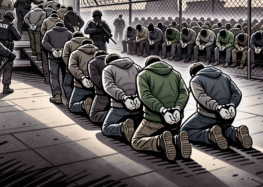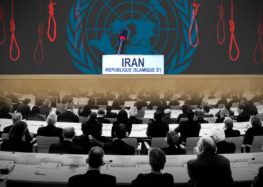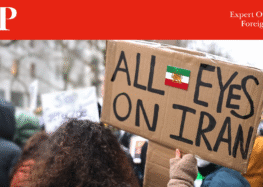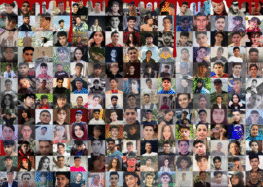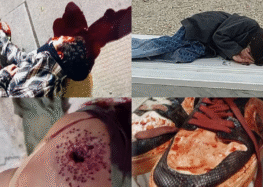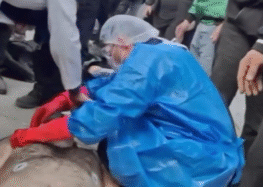Activist Abolfazl Tabarzadi Released from Detention Due to Severe Medical Condition

Activist Abolfazl Tabarzadi
Abdolfazl Tabarzadi’s grandmother: We have made a complaint about Karoon Prison (in Ahvaz). Officials: We have no idea what has happened to Abdolfazl.
Student and human rights activist Abdolfazl Tabarzadi has been released after six months of imprisonment in Karoon Prison, after the medical examiner and a judge determined he is medically unfit to serve his prison term. Suffering from severe psychological problems, Tabarzadi is currently being treated at his family home. His grandmother, Sakineh Zibaei, told the International Campaign for Human Rights in Iran that the family had no idea what had happened to him in Karoon Prison.
“After four months in prison, on January 2012, he was transferred to the hospital due to severe paranoid hallucinations. The medical examiner granted him two months of medical furlough and now he is under treatment,” Tabarzadi’s grandmother said.
Describing his current psychological state, Zibaei told the Campaign, “I don’t know what happened to him in those six months. He says nothing. But any discussion regarding interrogators and prison, he just feels disturbed. He is under treatment and he takes seven pills everyday. His family also has been threatened not to speak with media.” She added, “My grandson developed a severe psychological problem and then was hospitalized for two months. The judge has newly stated that Abdolfazl can’t tolerate the prison anymore and he is free to go home. I don’t know when he is going to be like before.”
Abdolfazl Tabarzadi, a 25-year-old student activist and the nephew of imprisoned political activist Heshmatollah Tabarzadi, was arrested on December 19, 2010, at his father’s home. He was sentenced to 15 months in prison on charges of “acting against national security” and “contact with foreign media.” His sentence was later reduced to nine months in prison by an appeals court. He was transferred to Karoon Prison in Ahvaz on October 18, 2011, and released in April 2012 for medical reasons.
Abdolfazl Tabarzadi’s grandmother said, “We have made a complaint but Abdolfazl’s health is more important to us and we don’t want to agitate him. How can we follow the process when we can’t talk about the touchy subjects like complaints, interrogators, and court at home? We are reticent now because of his condition, and we are focusing on his treatment.”
Last year, after Tabarzadi’s transfer to the Mental Hospital of Ahvaz, his father told the Campaign, “Abdolfazl has been suffering from severe paranoia and constantly thinks he has to respond to interrogators. He thinks the agents are after him and he is very worried for his family. He used to wake up screaming in the middle of the night.”
His father also said, “When a student who has never thought about prison or such things is sent to a place like Karoon Prison in Ahvaz, which is even worse than the medieval prisons, well, he would go crazy. In this prison, there is no separation of inmates according to type of crime. Murderers, thieves, addicts, and all kinds of criminals sleep and live next to each other. Abdolfazl has a very sensitive soul and apparently could not take it anymore. He was under heavy pressure and interrogations last year. They took him to court in handcuffs and shackled, without a lawyer, and then they sent him to prison. Well, what else has to happen to drive someone crazy?”

